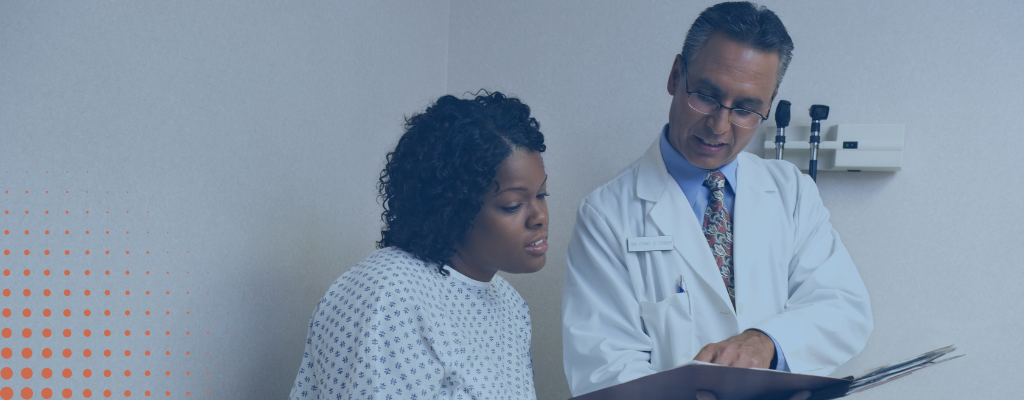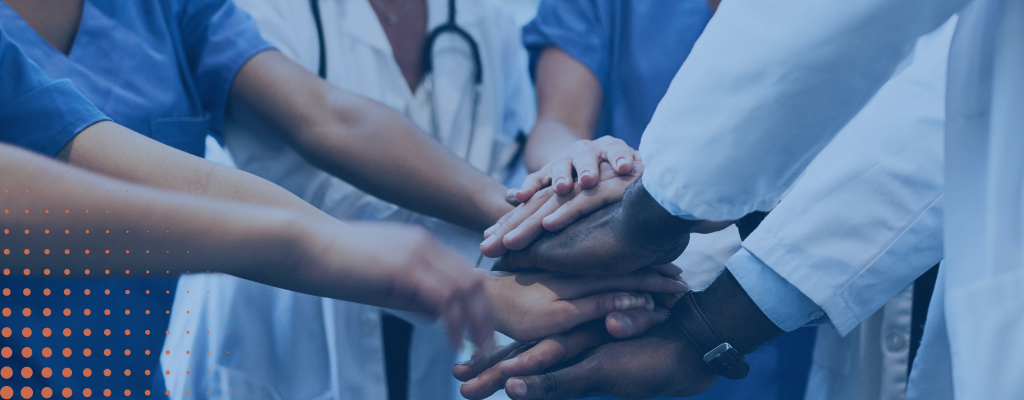
Expanding Access to Healthy Food
Forward Leading IPA (FLIPA) understands the impact of social care needs on overall health. Our mission is founded on the vision that the integration of primary care, behavioral health and social care is essential for improving the overall health and wellness of individuals and their families. FLIPA is committed to partnering with our member organizations and community-based organizations to address social care needs.
FLIPA has several programs across our network focused on increasing access to healthy foods with particular attention to reducing transportation barriers related to receiving the food.
Food Prescription CSA
A Healthy Hand
Food Education and Healthy Eating

FLIPA Patient Consent Process
Patients signing the consent form will allow FLIPA and its participating provider organizations to improve the integration of physical, behavioral health and social care, and will help healthcare providers improve coordination and quality of care. It is a significant step in FLIPA being a clinically integrated network.
The patient consent form that FLIPA members are using was developed in consultation with an attorney knowledgeable in 42 CFR Part 2. Obtaining patient consent will enable FLIPA members to see data for shared patients.
If a patient consents, the only people who can access the patients’ health information are FLIPA’s network of providers that see a particular patient/client, and staff members on the FLIPA team that are responsible for contract management.
If a patient consents, FLIPA and its participating provider organizations will use the patients’ health information for: treatment services, insurance eligibility verification, care coordination, case management, and quality improvement initiatives.
The goal is to utilize FLIPA’s shared data platform: Garage to share data between those that serve the same patient/client.
A patient can deny or withdraw their consent at any time. The consent will be in effect until the day the patient changes their consent choice or death.The patient health information sharing is governed by laws and regulations including New York Mental Hygiene Law Section 33.13, New York Public Health Law Article 27 F, and federal confidentiality rules, including 42 CFR Part 2 and HIPAA.

Garage (Bridge platform)
A Population Health Management System
When it comes to healthcare, protecting personal health information is critical. And, while traditional EMR systems are secure and protect privacy, they tend to exist in isolation. In order to offer the most comprehensive care, every provider needs to know more about patients, such as their prescriptions and their mental health status.
FLIPA uses Garage’s Bridge software platform for secure, real-time sharing of patient information across providers, care managers, patients, and their providers. It enables them to communicate with patients, track their care across different providers and agencies, view clinical data, and improve their care through intelligent analytics.
Bridge enables FLIPA to instill confidence in patients about their privacy while strengthening relationships with providers. It’s one of our most important tools for improving the health of the communities we serve and lowering costs.
Garage pulls together patient information from multiple sources, from risk information to diagnosis codes to prescriptions and behavioral health. It can even show the claims from hospital visits and the associated costs.
All this matters to our members, because a comprehensive picture of every patient leads to better care and lower costs. FLIPA enables its members to maximize their compensation through Value-Based Payments—the dollar amount set by insurers and health systems for specific health episodes. If an organization can address a given health episode for below the set dollar amount, they’re able to receive the difference as revenue.
The money FLIPA members save gets reinvested into their organizations so they have more resources to meet their needs, such as hiring more healthcare professionals.

Prioritizing Integrated Care:
The Integrated Acute Contact Team (i-ACT™) Model
I-ACT™ by FLIPA builds on the success of a Behavioral Health/Primary Care integration pilot in 2020. The i-ACT™ solution addresses the need for a system of care that can best improve outcomes for and reduce preventable costs of individuals with acute physical health, mental health, substance use, and social care needs by promoting collaboration and implementing efficiencies between the patient’s healthcare providers.
This innovative solution brings together Care Coordinators from primary care and behavioral health settings serving the same patients to function as one shared treatment team across organizations. I-ACT leverages FLIPA’s population health analytics to risk stratify individuals along with a set of integrative standards of care to improve effective outreach, facilitate efficient care coordination, and reduce barriers to access and engagement for individuals.
I-ACT™ Model Tools for Success:
- Best practices and advisory services for implementing integrated engagement, including regular case conferences and patient-centered, collaborative goal setting
- Anti-stigma, trauma-responsive outreach that prioritizes acute needs of the whole person
- Modest discretionary budget to overcome structural barriers (e.g., grocery gift card, gym fees, internet connectivity)
Three instances of the i-ACT™ Model are currently implemented across the FLIPA network with additional expansion efforts underway.
- Oak Orchard Health and CASA Trinity
- Finger Lakes Community Health, FLACRA and Lakeview Health Services
- Oak Orchard Health and UConnectCare
Benefits of the i-ACT™ Model:
- Prioritization of social care needs as a pathway to addressing medical and behavioral health needs
- Reduction in duplication of efforts increases ability to serve more patients
- Communication and learning across care teams
- Focus on patient preferences and needs through transitions in care
Results of implementation thus far demonstrate a clear impact on reducing acute service utilization and enhancing engagement in both primary care/medically necessary services as well as outpatient mental health and substance use services.
- 83% decrease in emergency room/inpatient utilization
- 44% increase in outpatient medical services
- 194% increase in outpatient behavioral health services*
* Rates based on differences in utilization 6-months prior to admission to i-ACT compared to 6-months following admission for a cohort of 15 individuals Data source: NYS PSYCKES Recipient Summaries extracted February and July 2023

Programs and Relationships
NYS Office of Rural Health—Addressing concerns in rural areas is core to FLIPA’s mission. This partnership is focused on rural areas’ network capabilities. The Office of Rural Health is supporting our work through a state grant.
Value-Based Care—FLIPA members are working together and with our communities to improve population health and manage costs for the Medicaid, HARP and Medicare populations.
Finger Lakes Performing Provider System (FLPPS)—FLIPA and FLPPS are collaborating on a Delivery System Reform Incentive Payment (DSRIP) program to reduce avoidable hospital use by 25 percent over five years. The partnership is funded through a System Transformation and Community Investment (STACI) grant.
Forward Leading Families
Forward Leading Families (formerly Bright Start Connect) by FLIPA strives to help young children (from birth to 8 years old) thrive by providing caregivers and providers access to early childhood resources and services. The aim is to boost the health and well-being of little ones by empowering families and professionals alike within upstate New York. Forward Leading Families offers web-based videos and tools curated by licensed experts to support parents and caregivers with questions about their child’s behavior, sleep, eating habits, language development, and more. Additionally, Forward Leading Families hosts parenting groups and one-on-one virtual support sessions with licensed clinical psychologists who specialize in early childhood development for families needing extra assistance. This program also extends its support to pediatric primary care teams and early education/childcare settings through training and consultation. By translating evidence-based best practices from the latest research, Forward Leading Families hopes to strengthen the systems that assist families and foster resilience and positive development in young children, all while addressing child health needs. Forward Leading Families is made possible through a Project LAUNCH (Linking Actions for Unmet Needs in Children’s Health) grant, funded by SAMHSA (Substance Abuse and Mental Health Services Administration).
Forward Leading Families focuses on four key goals:
Goal 1: Share resources with families and professionals on infant and early childhood mental health practices, prevention, positive behavior strategies, support and consultation
Goal 2: Increase access to screening to identify needs
Goal 3: Improve education for primary care, early education/childcare providers
Goal 4: Establish multi-level behavioral health supports, increase access to services through partnerships and simple referral systems
Visit forwardleadingfamilies.org for more information.



